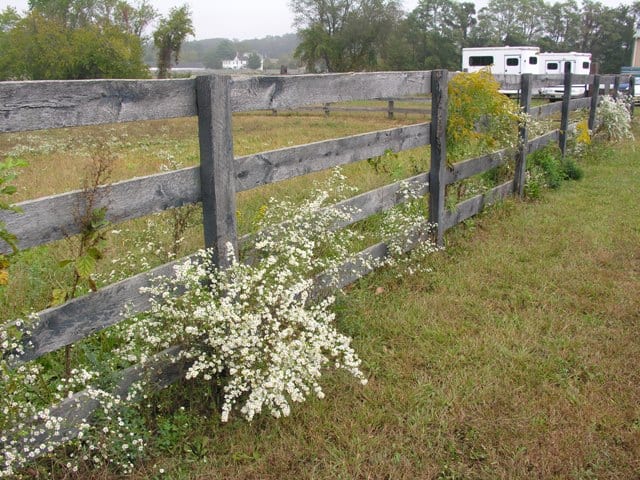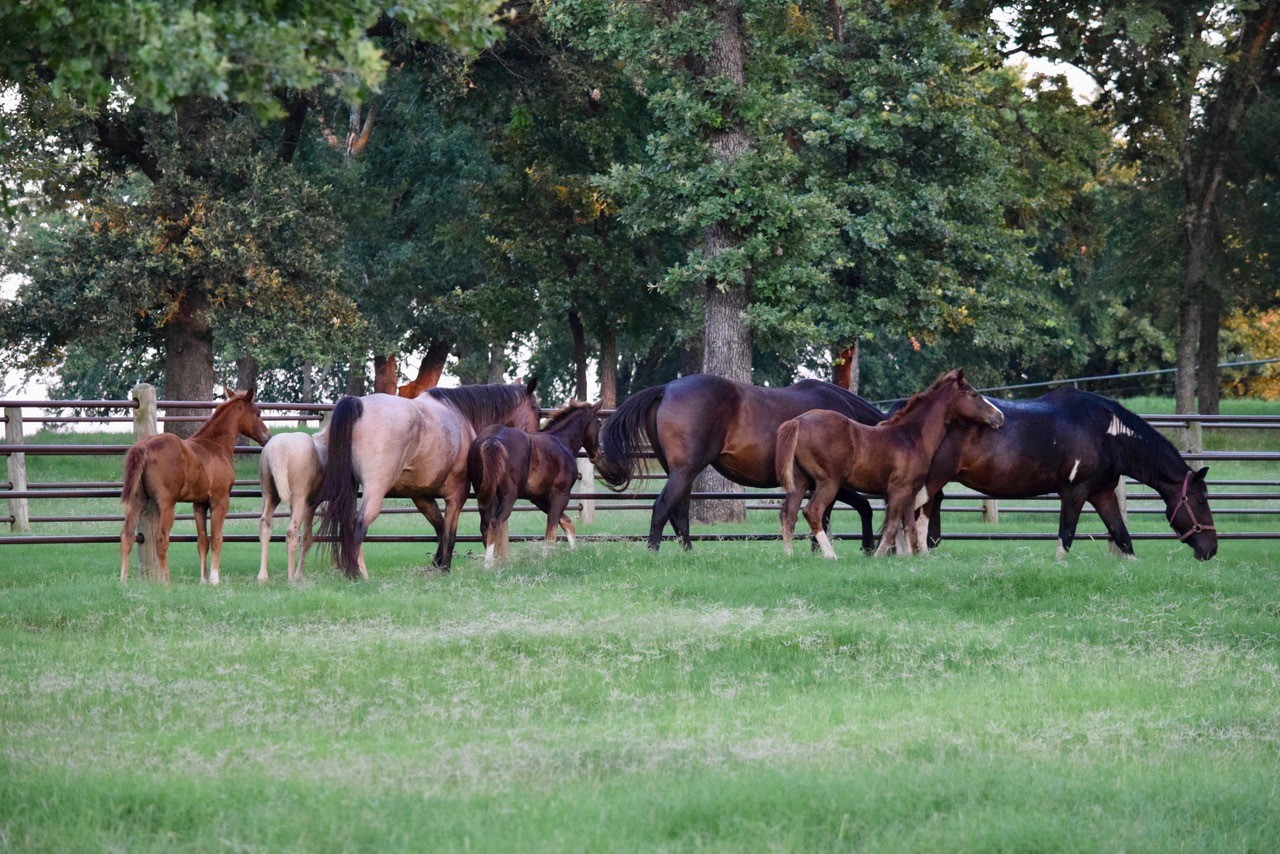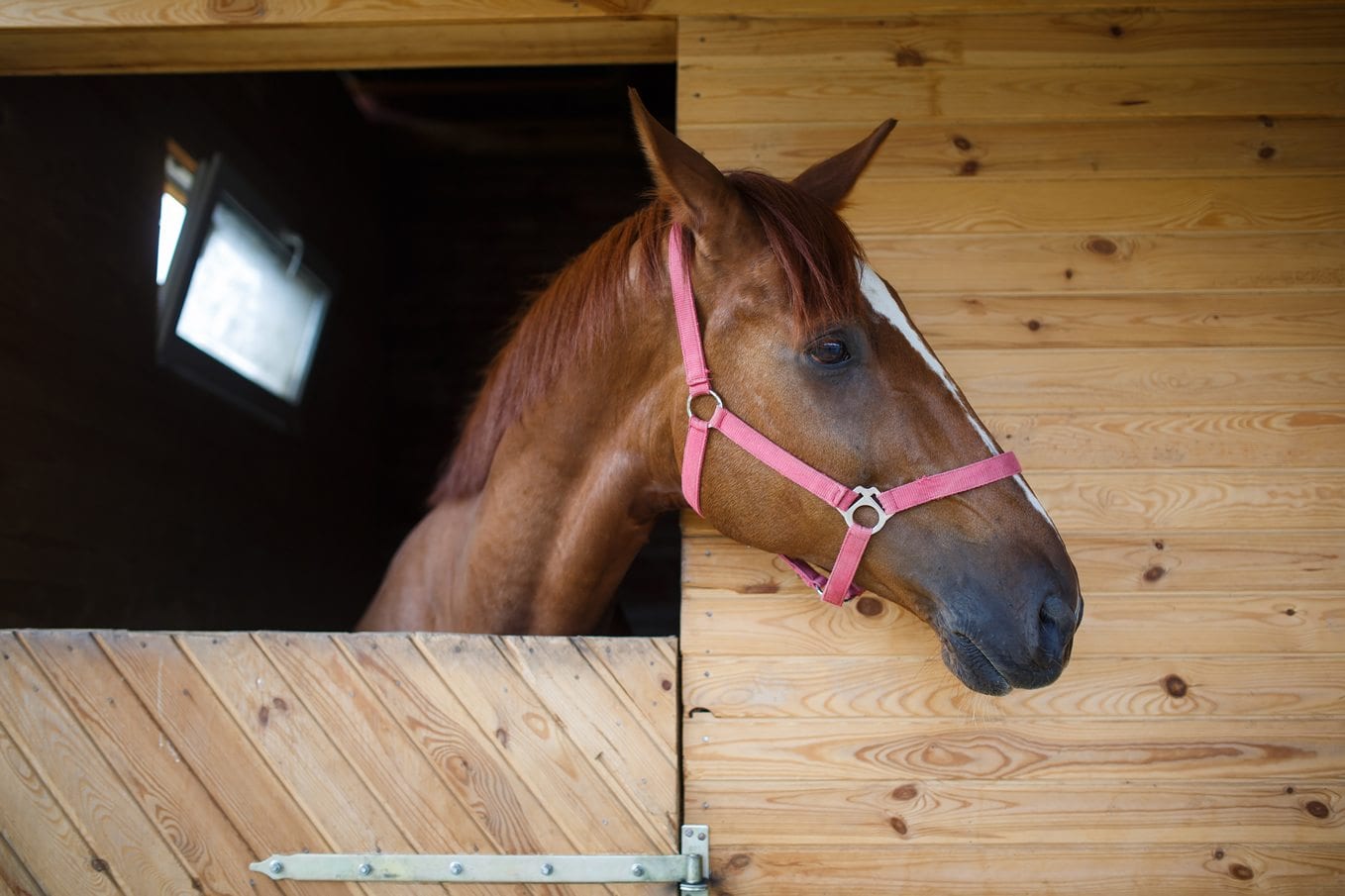You might only spend time thinking about your pastures when it’s springtime and you’re watching green grass come up, or when it’s August and your fields look a bit brown. But successful pasture management is a year-round affair that takes careful planning and strategic execution — and the more time you spend strategizing, the more nutrition you’ll be able to provide to your horse through good land management.
In
Part 1 in this ongoing series on Pasture Management for Healthy Horses, we discussed the proper balance of grasses and herbs to plant for optimum nutrition. In Part 2 of the series, we’ll help you identify and do battle with some common weeds before they pop up in your pasture this spring.
Pasture Weed Control for Healthier Horses
It’s no secret that a better diet leads to a healthier horse. You may already spend plenty of time
evaluating your horse’s diet — but even if your pasture contains an
optimal mix of grasses and herbs, allowing weeds to flourish counteracts those benefits. Horses don’t have the same ability to break down low-quality feed that ruminants like cows do, so it’s important to provide top-quality options. And that means not giving valuable real estate to nutritionally worthless weeds.
Fight Pasture Weeds Before They Sprout
Remember last summer when you laughed at the zany horse nibbling the tops off of the thistles in your pasture? Chances are, he was scattering seeds around your pasture with every bite, making sure that even more thistles would sprout next year to satisfy his odd tastes. That’s a perfect example of why it’s important to fight weeds before they get to be a major problem. The best way to do this is to understand how weeds spread.
How to Prevent Weeds from Spreading in Your Pastures
Avoid Overgrazing Pastures
Ever noticed how quickly weeds take over a bare patch of ground? For this reason, overgrazing is a major cause of weedy pastures. If you don’t have enough pasture for your horses (figure on at least two acres per horse), supplement with free-choice hay, and create a fencing plan to help rotate horses through several different grazing areas (more on that in Part 3 of this series). If you do have adequate pasture, you probably need to
pick an appropriate seed mix and go through the process of
overseeding your pastures. Overseeding an entire pasture is best done in early fall or early spring, when seeds will have less competition from weeds.
Pull Weeds up by the Roots
Some weeds can be tricky to identify when still young, but your local agricultural extension office should be able to help you identify common pests while still small enough to rip out by the roots. And while you shouldn’t let weeds get to a mature stage before addressing them,
this slideshow might help trigger a memory of weeds you may have noticed last year to help you identify the youngsters this year. Some weeds, such as buttercup, white snakeroot, milkweed, hemp dogbane and poison hemlock, are poisonous to horses and should be eradicated immediately. Others, such as ragweed and tall ironweed, aren’t poisonous — but they are pests that take up real estate better suited to more nutritious plants.
Mow Pastures Early in the Season
While pulling noxious weeds up by the roots is the most effective (and satisfying!) way to deal with weeds, you probably won’t get all of them. In this case, your next best defense is to mow early in the season, before weeds go to seed and spread even more. Just remember that this won’t get rid of the weeds — just prevent them from going to seed.
Consider Spraying Pastures with Herbicide
Herbicides are another option, but one to be carefully considered before put into practice. Herbicides are designed to target specific weeds, so you must know what you’re trying to get rid of before purchasing and applying a product. And even then, an herbicide is also likely to kill beneficial plants. Secondly, some herbicides can be toxic to the environment. Some environmentally friendly alternatives are available, but always do careful research, and spray with care.
Herbicides vary in potency, from those considered “restricted,” which must be applied by a licensed applicator, to those that are less potent and can be applied by land owners. All will require you keep your horses completely out of the pasture
for a specific period of time. (And remember that you’ll need to clear the field of the dead vegetation before allowing your horses in to graze.) Consult your local agricultural extension for specific recommendations, and be prepared to start an overseeding program to replace the weeds you kill with beneficial herbs and grasses.
Proactive Pasture Weed Management Techniques
While most of us probably need to start with attacking the weeds already sprouting in our fields, a good pasture-management system begins with
year-round pasture care, from
taking a soil sample, to evaluating your seed mix, to combatting weeds. It may seem like a never-ending chore, but remember that every step you take to improve your pastures directly relates to the quality of your horse’s health.
Up Next: Grazing Management Tips for Healthier Pastures
Learn how to protect and improve your pastures by practicing good pasture management. In P
art 3 of Pasture Management for Healthy Horses, we’ll help you make a plan to implement in the spring and summer to help your pastures — and your horses — thrive.
Subscribe to the SUCCEED blog to be sure you don’t miss the third and final post in this series on pasture management.
Photo by eXtensionHorses licensed via CC2.0. 



